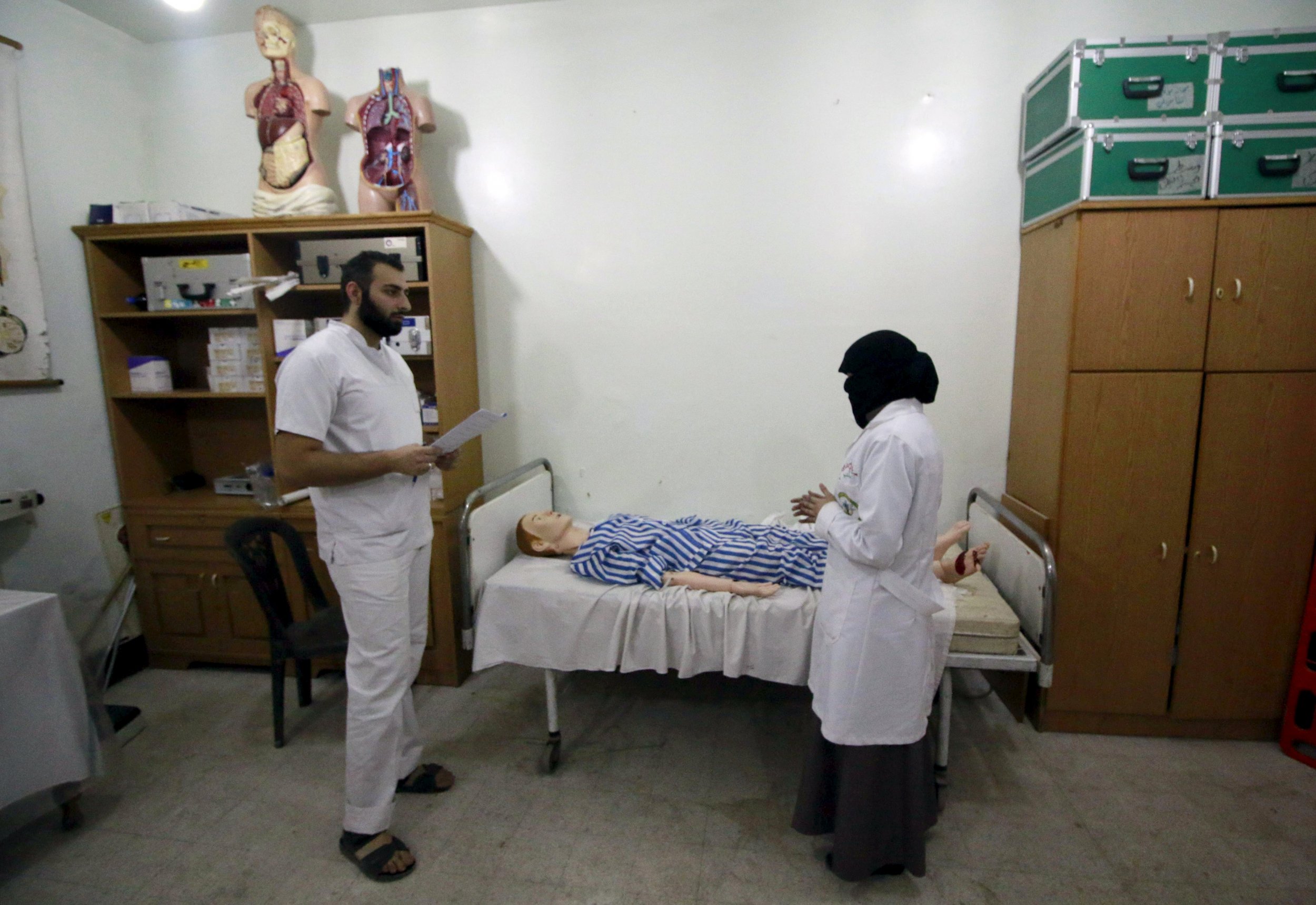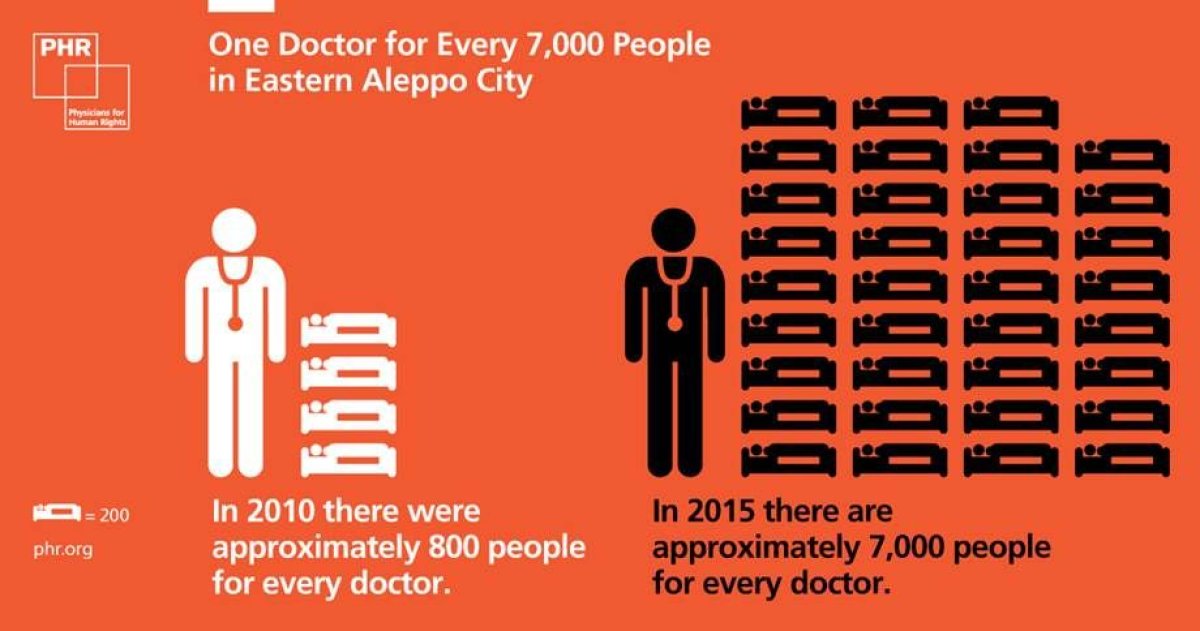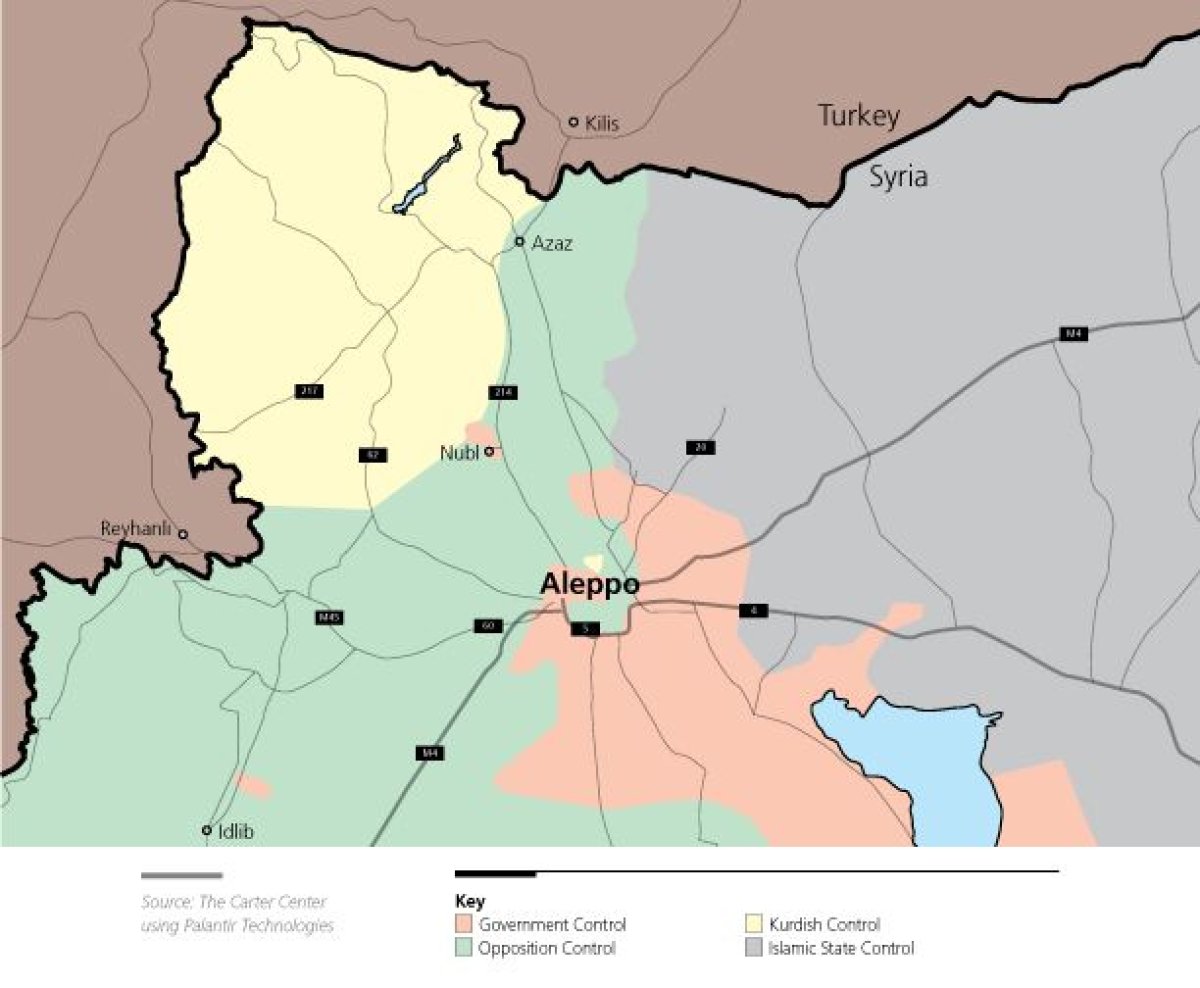
Updated | Between 70 and 80 doctors and 200 nurses remain in eastern Aleppo, the rebel-held section of what was Syria's largest city, a massive decrease since the start of the country's civil war, according to a report released Wednesday by Physicians for Human Rights (PHR), a nonprofit based in New York City.
Since the war began in 2011, 95 percent of the city's doctors have fled, been killed or been detained, the report found. And less than one-third of the city's hospitals are still functioning. A major reason: Government forces have targeted them with aerial bombardments and barrel bombs more than 45 times.
"We see this as a terrifying precedent for what could indeed be a very effective weapon of war," says Michele Heisler, co-author of the report and professor of internal medicine and public health at the University of Michigan. "Once you start targeting hospitals so people can't give or receive medical care, it is an insidiously effective way of sowing terror."

PHR focused on eastern Aleppo because of the large number of attacks on medical facilities and the extent of the damage. There is now one doctor for every 7,000 inhabitants there, compared with 2010, when there was one doctor for every 800 residents, according to the report. Since the start of the war, the population of eastern Aleppo city has decreased from 1.2 million people to roughly 300,000, it said. Before the war, the population of the entire city was 2.4 million.

Though more acute in Aleppo, the targeting of hospitals is a problem across Syria, according to the report. Since March 2011, 686 medical personnel have been killed, and there have been 329 attacks on medical facilities throughout Syria, according to the nonprofit. This year has been the deadliest one for attacks on Syrian hospitals, and October was the deadliest month on record, with 16 attacks, including 10 by Russian forces allied with the Syrian government, according to PHR. "The city of Aleppo doesn't represent the worst of the destruction, but conditions there visibly illustrate the consequences of systematic attacks since 2012," says Heisler.
To compile the report, PHR spoke with 24 medical personnel who work in Syria, along with staff at Aleppo's 10 functioning hospitals, among others.
Heisler says it's possible there could be more doctors in Aleppo than previously thought, but many may be reluctant to identify themselves. "Our estimate is based on what we calculated is still there," says Heisler. "We try as much as possible to document actual deaths."
PHR found that eastern Aleppo city has just one neurologist, one cardiologist and one female gynecologist, as well as one or two urologists and ear, nose and throat specialists. The group was unable to identify any psychiatrists or psychologists, meaning mental health care is extremely difficult to come by in the traumatized city.
The report also includes testimony from Syrian doctors about the conditions they face while working. Doctors live in "constant fear of the next attack," the group found. One doctor who spoke with PHR said he effectively lives in the hospital, as the need for medical attention never stops. Another doctor said the rate of burnout among medical professionals is high.
Doctors are mainly treating acute injuries from barrel bombs, Heisler says. Many are learning on the job, performing operations they have never done before.
"For many of us, the idea that they're actually targeting people seeking health care, they're targeting people who are supposed to be healers, there is a kind of horror to that," says Heisler. "[It] is a very devastating form of terror that can make people give up hope."
Correction | This article originally stated that there are 50 doctors left in Aleppo. PHR says there are a maximum of 70 to 80 doctors who work in Aleppo over the course of one month, but because many of those doctors return to Turkey to recuperate before going back to work in Syria, between 37 and 50 physicians are working at any given time. The story has been updated to reflect this. In addition, this article has been corrected to make clear that the report focuses on eastern Aleppo city, the rebel-held section of the city. PHR does not have data for the western, government-controlled part of the city.
Uncommon Knowledge
Newsweek is committed to challenging conventional wisdom and finding connections in the search for common ground.
Newsweek is committed to challenging conventional wisdom and finding connections in the search for common ground.
About the writer
Before joining Newsweek, Lucy Westcott was an editorial fellow at The Wire. Previously a United Nations correspondent for the Inter ... Read more
To read how Newsweek uses AI as a newsroom tool, Click here.








